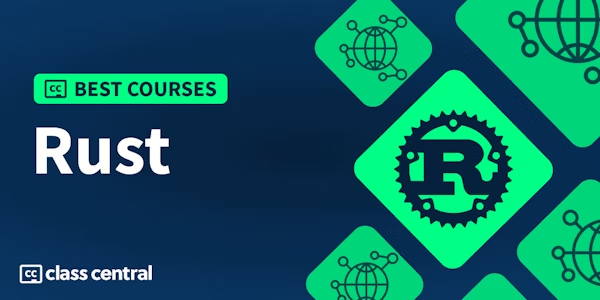- Module 1: A quick introduction to Rust language features and how Rust compares with other programming languages.
- Get a brief introduction to Rust.
- Discover why developers choose Rust over other programming languages.
- Understand the basic components and tools for using Rust.
- Try working with code in the Rust playground.
- Module 2: Learn how to set up the Rust development environment, write a program, and use the Cargo build system.
- Set up your development environment for using Rust.
- Write a simple "Hello, world!" program.
- Use Cargo, Rust's build tool and dependency manager.
- Module 3: Learn about Rust concepts, including variables, data types, and functions.
- Explore core Rust language concepts, including functions, data types, and variables
- Understand basic Rust types for text, numbers, boolean values, and compound data
- Create, compile, and run a basic Rust program
- Discover how to print output from your program
- Module 4: Explore Rust compound data types like arrays, vectors, and hash maps. Discover how to use if/else statements to test conditions.
- Explore Rust compound data types: arrays and vectors
- Discover how to use if/else statements to test conditions in a Rust program
- Create, compile, and run a Rust program to process compound data and test values
- Module 5: Explore how to use hash maps in Rust. Discover how to use loop expressions to iterate through data.
- Discover the hash map data type in Rust, and how to access keys and values
- Explore how to use loop expressions to iterate through data in a Rust program
- Create, compile, and run a Rust program to iterate on hash map data by using a loop
- Module 6: In this module, you'll learn about ways to handle errors in Rust.
- Use panic! to deal with unrecoverable errors.
- Use the Option enum when a value is optional or the lack of a value is not an error condition.
- Use the Result enum when things could go wrong and a caller might have to deal with the problem.
- Module 7: Discover the features that make Rust so unique: ownership and borrowing.
- The concept of ownership in Rust.
- Moving and borrowing values.
- Scoping rules and lifetimes.
- Rust's pointer types, commonly called references.
- Module 8: Understand what generic types and traits are and how to use them in Rust.
- What generic types are and how "wrapper" types use them.
- What traits are and how they help us define shared behavior.
- How to implement an existing trait for a custom type.
- How to implement a custom trait for an existing type.
- How trait bounds help us write generic functions.
- How to implement an Iterator trait to iterate through collections.
- Module 9: Learn about how to effectively use modules and how to integrate with packages and third-party crates.
- How to organize your code in files, modules, and packages.
- How those concepts interact.
- How to use third-party packages from the Crates.io repository.
- Module 10: Learn about the types of testing you can do with Rust.
- How to write unit tests.
- How to write integration tests.
- How to write documentation tests.
- Module 11: Create a Rust command-line program to manage to-do list items.
- How to develop a real-world command-line program by using tested third-party crates for command-line parsing and error handling.
In this module, you'll:
In this module, you will learn how to:
In this module, you will:
In this module, you will:
In this module, you will:
In this module, you'll learn how to:
In this module, you'll learn:
In this module, you'll learn:
In this module, you'll learn:
In this module, you'll learn:
In this module, you'll learn:


